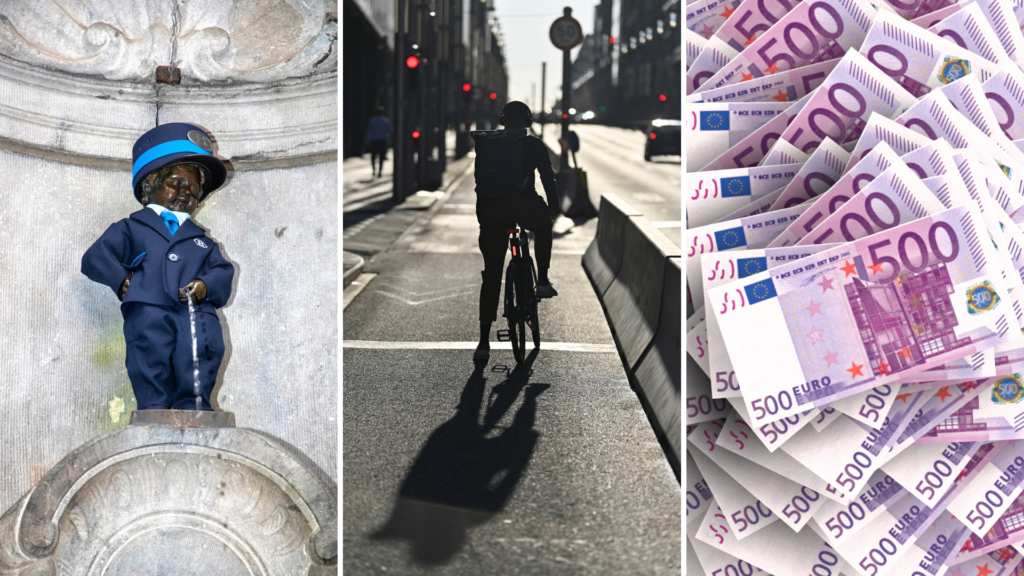The first of the month seems to come around more rapidly as the year goes on, but unlike the start to last month which saw a large number of changes, May brings fewer novelties.
Mandatory bicycle allowance
Those who cycle to work and are not already entitled to a specific bicycle allowance under a collective bargaining agreement (CBA) will receive a tax-free allowance of €0.27 per kilometre from 1 May for a maximum of 40 kilometres, amounting to a maximum of €10.80 per day.
Until now, it was up to the employer or the sector as a whole to decide whether to grant an allowance. From Monday, this will become mandatory. The allowance will also be increased from €0.25 per kilometre in 2022.
The change is the result of an agreement between employer and employee representatives within the National Labour Council. Nothing will change for employees who already receive a bicycle allowance as part of existing agreements.
No cash payments on train
Train attendants will no longer accept cash payments for tickets bought on board SNCB trains from 1 May in a bid to reduce the workload of ticket inspectors by cutting the number of people buying their train tickets after boarding.
The company explained it is also the latest step in the push for cashless payments, a policy the company has been driving for since the Covid-19 pandemic. Removing the need for inspectors to carry cash has also been presented as a safety precaution.

SNCB has been pushing for cashless payments since the Covid-19 pandemic. Credit: Belga/ Thierry Roge
SNCB has already applied a €9 surcharge to the normal ticket price to dissuade passengers to tempt their luck by not buying a ticket, and then purchasing it after boarding the train if ticket inspectors pass by.
Passengers are encouraged to buy the tickets via their app, website, ticket office or ticket machines in stations, where cash payments will of course still be possible. Other public transport companies, including De Lijn and STIB, have already done away with onboard cash.
Government 'savings' account cuts interest rates
Anyone with money on an e-DEPO with the Deposit and Consignment Office of the Belgian State will see the interest rate drop considerably after the Federal Government decided to implement a ceiling of 2.50% gross.
The accounts had offered more attractive interest rates than traditional bank savings accounts for several months – as high as 3.1% gross. However, the fund managers have cautioned that relatively high interest rates could be detrimental to the "proper management of public debt."
Consumer rights organisation Test Achats criticised the announcement, arguing savers are not being taken into account: "Of course, proper debt management is a delicate exercise, but at the same time the e-DEPO account offers the State an advantageous means of financing." Spokesperson for Test Achats Laura Clays explained that this effectively works out as 30% more cost effective for the government.
But despite the interest rate now being capped at 1.75% net, the e-DEPO account remains slightly more attractive than other savings accounts. Only the Vision Plus account from online bank Santander Consumer Bank currently offers a similar interest rate (0.65% base rate + 1.10% fidelity premium)."
Proximus new mobile tariffs
From Tuesday (2 May), Belgian telecom operator Proximus will be launching four new mobile tariff plans.
The cheapest plan, Mobile Essential, offers customers 5 gigabytes of mobile data on top of unlimited texts and 150 calling minutes for €16.99 per month.
The mid-range plans are Mobile Easy, with 10 gigabytes of mobile data and unlimited calls and texts for €19.99; Mobile Maxi allows 50 gigabytes of mobile data and unlimited calls and texts for €29.99 euros a month. These customers also get access to Proximus' 5G network.
Finally, for €49.99 a month, customers can enjoy a fully unlimited subscription (Mobile Unlimited), which comes with 5G speeds of up to 1 Gbps.

